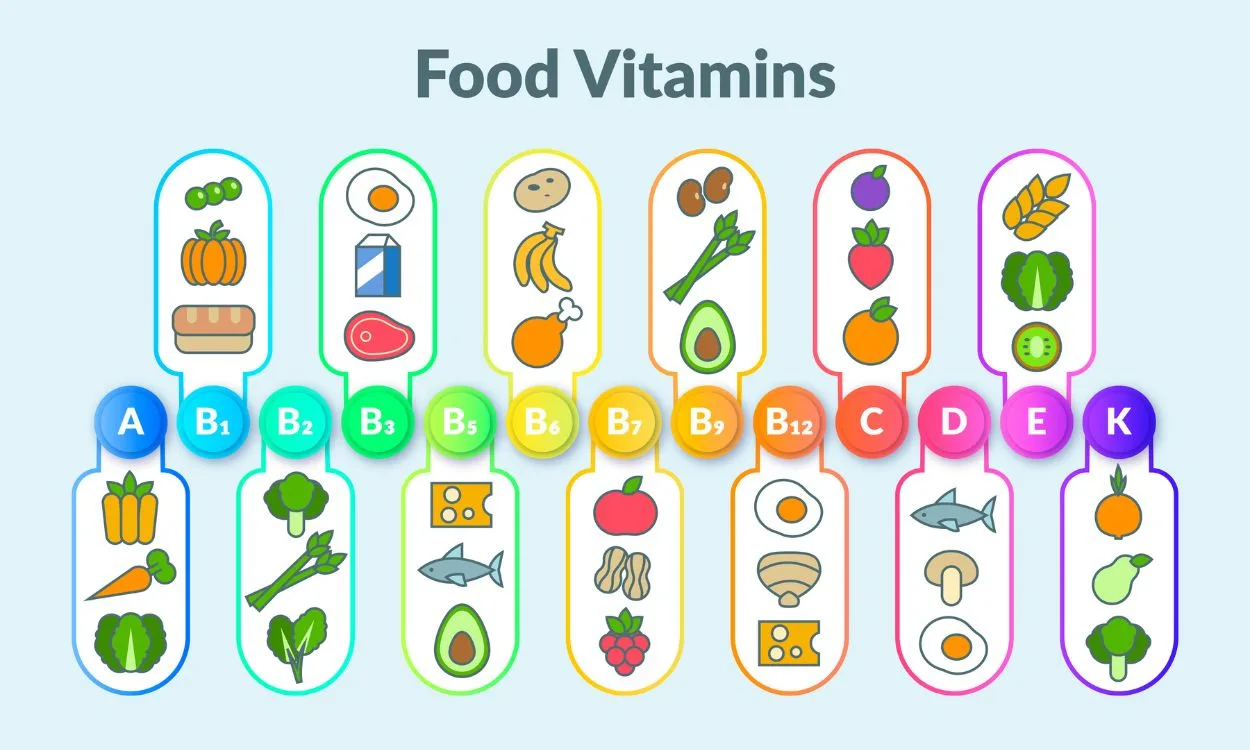Why are Vitamins and Minerals Important for the Body?
Vitamins and minerals play a crucial role in maintaining overall health and well-being. They are essential nutrients that our bodies need in small amounts to function properly. While vitamins are organic compounds and minerals are inorganic elements, both are vital for various physiological processes. Let’s explore why these nutrients are important for the body:
Vitamins:
- Support Growth and Development: Vitamins are involved in cell division, tissue growth, and development. They help in the production of new cells and contribute to the growth of bones, teeth, and muscles.
- Boost Immune System: Certain vitamins, such as vitamin C, vitamin D, and vitamin E, are known to strengthen the immune system. These vitamins help fight off infections and protect the body against harmful pathogens.
- Act as Antioxidants: Vitamin A, vitamin C, and vitamin E are powerful antioxidants that neutralize harmful free radicals in the body. Antioxidants help reduce oxidative stress and lower the risk of chronic diseases, including heart disease and cancer.
- Support Energy Metabolism: B vitamins, including thiamine (B1), riboflavin (B2), niacin (B3), pyridoxine (B6), and cobalamin (B12), are involved in energy metabolism. They help convert food into energy and ensure proper functioning of the nervous system.
- Maintain Healthy Skin, Hair, and Nails: Vitamins, such as biotin, niacin, and vitamin C, play a crucial role in maintaining healthy skin, hair, and nails. They promote collagen production, improve skin elasticity, and prevent hair loss or brittle nails.
Minerals:
- Build Strong Bones and Teeth: Calcium, phosphorus, and magnesium are essential minerals for bone health. They support bone density, strength, and help prevent conditions like osteoporosis.
- Regulate Fluid Balance: Minerals like sodium, potassium, and chloride help maintain proper fluid balance in the body. They play a vital role in electrolyte balance, nerve function, and muscle contraction.
- Support Nervous System Function: Minerals such as magnesium, calcium, and potassium are essential for the proper functioning of the nervous system. They help transmit nerve impulses, regulate muscle contractions, and support brain function.
- Facilitate Enzyme Function: Many minerals, including iron, zinc, copper, and manganese, act as cofactors for enzymes. Enzymes are proteins that facilitate chemical reactions in the body and are necessary for various physiological processes.
- Support Red Blood Cell Formation: Iron is a crucial mineral for the production of red blood cells. It transports oxygen to different parts of the body and prevents anemia.
- Promote Heart Health: Minerals like potassium and magnesium help regulate blood pressure and maintain a healthy heart rhythm. They reduce the risk of cardiovascular diseases.
It is important to note that a balanced diet is the best way to obtain vitamins and minerals naturally. Including a variety of fruits, vegetables, whole grains, lean proteins, and dairy products will ensure you get an adequate intake of essential nutrients.
However, if you’re looking for additional support and guidance in achieving your health and fitness goals, downloading the Fitpaa app can be beneficial. Fitpaa provides personalized fitness plans, nutrition guidance, and expert consultations to help you optimize your overall well-being. With Fitpaa, you can track your progress, receive real-time guidance, and access a team of professionals dedicated to helping you achieve your goals.
To experience the transformative power of Fitpaa and embark on your journey towards a healthier life, download the app today. Your well-being is our mission, and we are committed to assisting you in achieving your health and fitness goals with guaranteed results.









